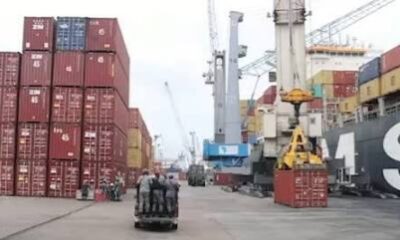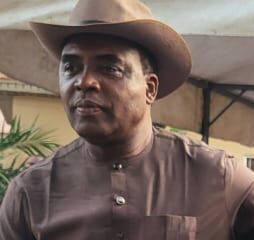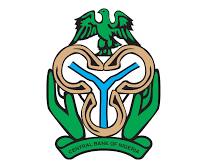Maritime
CBN Acts On ANLCA’s Appeal, Pegs Form M Closing Rate For IDA

BY EGUONO ODJEGBA
Acting on the intervention of the leadership of the Association of Nigerian Licensed Customs Agents (ANLCA), the Central Bank of Nigeria Friday, directed the Nigeria Customs Service, to henceforth adopt the FX rate obtained on Form M for use of Import Duty Assessment (IDA).
The National Executive Council (NEC) of ANLCA, comprising of the National Executive Committee (NECOM) and the Board of Trustees (BoT), had on Thursday, a day earlier, strongly protested the distortion of the import duty assessment using the erratic floating exchange rate.
While the association warned the federal government, especially the Federal Ministry of Finance and the Central Bank of Nigeria (CBN) to discontinue the application of the inter-dependence of the two fiscal instruments or risk ports shutdown via withdrawal of services by members; it lamented that the development has led to unhealthy disruptions in the trade process resulting negative trade, rising prices of goods and massive hardship on the populace.
Reacting, ANLCA chieftains have applauded the development, noting that the move indicates that the President Bola Ahmed Tinubu’s government is a listening one.
The directive contained in a memo dated February 23, 2024 and signed by Dr. Hassan Mahmud, Director, Trade And Exchange Department of CBN and addressed to all Authorized Bank Dealers, directed the Nigerian Customs Service (NCS) to utilise the forex closing rate on the date of the Form M submission by importers for the clearance of goods and import duty assessment.
Tagged ‘Foreign Exchange Rates For Import Duty Assessment’, the statement reads:
“Following the liberalization of the FX market on Willing Buyer — Willing Seller trading principle, the Central Bank of Nigeria has noted the concerns of Importers of goods and services in the irregular changes in the Import Duty Assessment levies applied by the Nigeria Customs Service.
“These developments have further built uncertainties around the pricing structure of goods and services in the economy and creating abnormal increases in the final sale prices of items, which is largely driven by uncertainties, rather than traditional market fundamentals, with implications to near term inflation trend.
“To this effect, the Central Bank of Nigeria wishes to advise that the Nigeria Custom Service and other related Parties adopt the closing FX rate on the date of opening Form M for the importation of goods, as the FX rate to be used for Import Duty Assessment. This rate remains valid until the date of termination of the importation and clearance of goods by importers.
“This would enable the Nigeria Custom Service and the importers to effectively plan appropriately and reduce the uncertainties around varying daily exchange rate in determining their revenue or cost structure, respectively.
“Therefore, effective 26″ February 2024, the closing rate on the date of opening of Form M for the importation of goods and services would be the rates that would apply for the assessment of import duty. This supersedes the requirements of Memorandum 9, J (2) of the Central Bank of Ni-eria Foreien Exchanee Manual. (Revised Edition), 2018.”
The apex regulatory bank added, “While the CBN is mindful of the initial volatility and price distortions in the aftermath of the FX market liberalization, the Bank is confident that these reforms, would in the medium term, ensure stability in the market and entrench market confidence necessary to attract investment capital for the growth and development of the Nigerian economy.”
ANLCA President, Mr. Emenike Nwokeoji while expressing satisfaction with the development said he hopes that the relevant authorities would also consider the rate for clearance of vehicles, which according to him is also critical to the success of the port economy.

“We are happy and grateful that the authorities have acceded to our plea and concerns, we note that this is
“This is all l can say for now, ANLCA members and the generality of freight forwarders can now worry about other things.”
Also reacting, one of the ANLCA President’s aides who crave anonymous said “ANLCA have also made series of representations to government in the area of imported vehicle rates, we don’t manufacture vehicles in Nigeria, so we are also hoping that this present leadership that is focused and engaging responsibly will help to intensify engagements with the appropriate authorities for a more realistic rate. This will create a robust and enhanced business atmosphere, because you cannot grow an economy that is import dependent on continuous, irreversible, outrageous rates.”
Addressing the media in its National Secretariat at Amuwo Odofin Lagos, leaders of ANLCA had said that the persistent fluctuation of the exchange rate for Customs duty has led to unhealthy distortions in the trade process.
Nwokeoji said, “The issue of foreign exchange rates in relation to the Naira has become somewhat intractable that we as the mouthpiece of the Customs brokers/freight forwarders in Nigeria can no longer afford to be silent.
“It is a well known fact that Nigeria’s trade has predominant foreign exchange content and Nigeria being an import-dependent country, the effect of any exchange rate distortions can be devastating. Our major concern is about the exchange rates being used in computing the import duty and other charges payable on imports and of attendant effects in promoting trade.”
He explained that the defects and distortions on trade have thrown members and their clients in the port economy into utter misery and disarray.
“On our part as Customs Agents/Brokers/Freight Forwarders, we now find it impossible to make credible quotes for jobs as the constant upward reviews of exchange rates render such quotes impracticable. Even the already contracted jobs are experiencing huge difficulties.
“Our members have cried out in agony and as a responsive leadership of the Association, we made moves to the Comptroller General of Customs and his management team, the explanation we got was that the rates are automatically generated by the Central Bank of Nigeria (CBN) hence they (the Customs) could not do anything about it.”
He called on the policy makers to look inward and come up with urgent solution as no country can afford to subject its economy entirely to the dynamics of international flow of demand and supply under a pressured, currency control.
“We are therefore calling on the Federal Government of Nigeria to direct the Central Bank of Nigeria (CBN) and other authorities involved in the exchange rate issuance to urgently stem the tide of this tension which may sound a death knell on import trade sooner than later.
“In as much as we appreciate that there are many factors that may be propelling the present exchange rate fiasco and equally believe that the government is taking measures to tackle them, we make bold to suggest that the exchange rate for Customs Clearance purposes should be stabilized by fixing it over a period of time (minimum of six months).
“The time frame being suggested is advised by the usual time it takes to start and conclude an import transaction putting into consideration all the myriads of impediments on the path of international trade nowadays.”
The Chairman Board of Trustees (BoT), Alhaji Taiwo Mustapha, and BoT member and former National President, Chief Sir Ernest Elochukwu, who respectively aligned with Nwokeoji’s position, warned that should the situation persist, the nation’s economy may likely be doomed to fail, especially with the masses purchasing power dwindling by the day, against the floating currency.



































